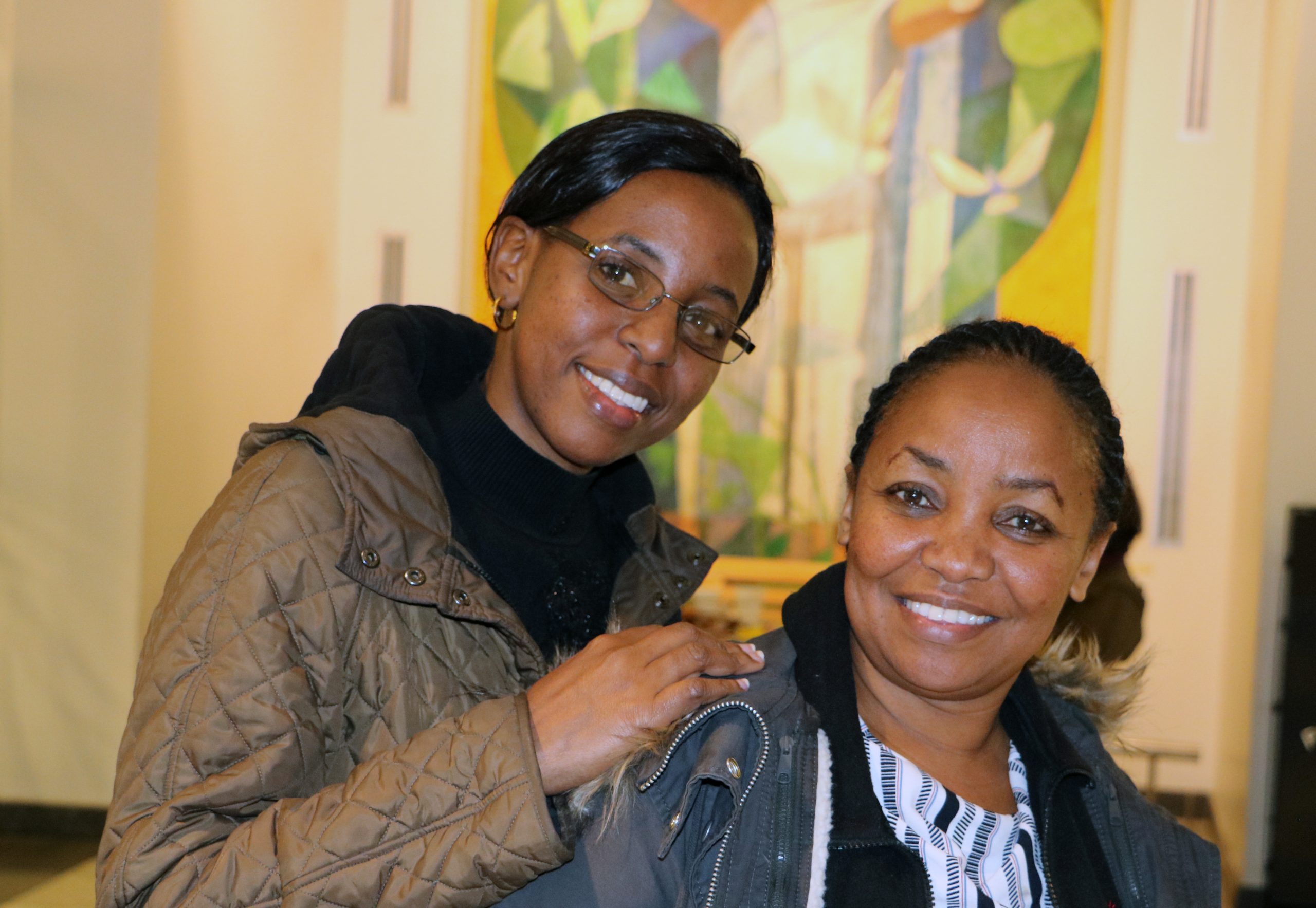What they have seen in Sweden will help them save more babies lives. Kandi Muze and Jacqueline Shoo are determined to spread knowledge of correct early treatments for babies in Tanzania.
 The weather may not be as chilly as normal for December, but Dr Kandi Catherine Muze and Dr Jacqueline Shoo from Tanzania appreciated their warm clothes when we met last week, at Karolinska University Hospital in Solna. At the end of their first visit in Sweden, their impressions were good, except for the cold and darkness.
The weather may not be as chilly as normal for December, but Dr Kandi Catherine Muze and Dr Jacqueline Shoo from Tanzania appreciated their warm clothes when we met last week, at Karolinska University Hospital in Solna. At the end of their first visit in Sweden, their impressions were good, except for the cold and darkness.
– People have been very kind and welcoming and our stay has been well planned, says Kandi Muze, Paediatrician and Endocrinologist at Muhimbili National Hospital in Dar es Salaam.
The two week visit from the Department of Paediatrics at Muhimbili, was part of the Life Support Foundation and MKAIC collaboration. Kandi Muze and Jacqueline Shoo spent time at Astrid Lindgren Children’s Hospital in Huddinge and at Karolinska in Solna. The visit included training at the Centre for Advanced Medical Simulation and in the neonatology wards, the emergency department and the Pediatric Intensive Care Unit.
– Seeing things put into practice in the hospitals here, gives a whole new understanding, says Kandi Muze. The system is advanced compared to ours in terms of equipment, technology and the way things are organized, but there are also many things that we can easily adapt to.
For example, Muze and Shoo mention the simple use of nylon bags to keep the neonates warm, the practice of keeping them covered during resuscitation, and of using smaller feeding tubes. 
– The most important thing that I have learned, is the need to work within the first 24-48 hours in order to save a a sick childs life, and that it is possible even with limited resources. We have a lot of deaths that could be avoided through awareness and proper treatment on an early stage, says Kandi Muze.
Jacqueline Shoo, Paediatrician and Nephrologist at the same hospital, mentions Swedish nurses vital role in prioritizing, and giving treatment early, thereby making the process more time effective.
– I have seen the importance of teamwork during my stay here. Discussions are held and decisions made together, she says.
On the other hand, working under the conditions that they do, means that doctors and nurses in Tanzania have developed skills that their Swedish colleagues can learn from too.
– We have lots of experience in how to deal with infectious diseases. We can read the symptoms at an earlier stage in small children, and know how to treat them, says Kandi Muze. Also, in the absence of advanced technical equipment, we have learned to think broadly when reading signs and finding the right diagnosis.
In Tanzania as a whole, there are only 120-130 Paediatricians, and most of them work at the referral hospitals in the big cities. The huge amount of patients, poor infrastructure, lack of equipment and drugs, and a delay in the ordering system, are some of the challenges.
– There is a lack of further training. Things change, and we need to be able to act according to new circumstances and guidelines, says Shoo.
They have a clear plan on how they wish to carry on with their new knowledge and experience, back in Tanzania.
– We want to start with the MKAIC-group and see the best doctors and nurses become trainers of trainers. We also want to work within the Pediatric Association in Tanzania. After a pilot project in Dar, we hope to reach all the surrounding regional hospitals, says Jacqueline Shoo.
They will also advocate for more advanced training early on, for future Paediatricians at medical school.
Turning back to their home country, they feel hopeful and motivated.
– We know it will not be easy, but step by step, with support from the head of our department, it is possible to change things for the better, says Shoo. Right now we haven’t got a separate emergency department for neonates, but we are planning for one. And what we have seen here will help us in this process, and in making sure the sick newborns will receive quicker treatment.
Every contribution is important! Read more about how you can help here.


